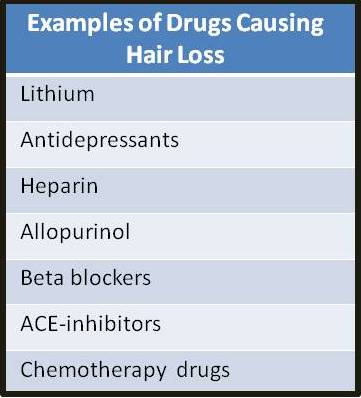Drugs and Hair Loss: Is it Common?
Many patients with hair loss tell me that they think one of the medications they take caused their hair loss. How can I tell if this is the case?
First off, sometimes it’s not possible to tell at all. Sometimes it’s only possible to give an “estimate” of how likely it is that a medication caused hair loss. If a patient started a medication in January and notices hair loss in March or April of the same year, that increases the likelihood that that medication caused hair loss. However, there are dozens of other reasons why the patient may be losing hair and these have to be carefully explored.
Furthermore, some medications are more likely to cause hair loss than others. These include blood pressure medications such as beta blockers or ACE-inhibitors, psychiatric medications such as lithium, SSRI antidepressants, allopurinol and vitamin A related medications. Heparin blood thinners are also sometimes the cause of hair. These drugs typically cause a hair shedding condition known as "telogen effluvium." Cancer chemotherapy drugs also cause hair loss, and often this is a specific type of more profound hair loss called "anagen effluvium." There are over 500 medications that can cause hair loss, but these examples are some of the most likely.
Overall, hair loss due to a medication is not very common. More times than not, another explanation for a patient’s hair loss can be found.
This article was written by Dr. Jeff Donovan, a Canadian and US board certified dermatologist specializing exclusively in hair loss.

